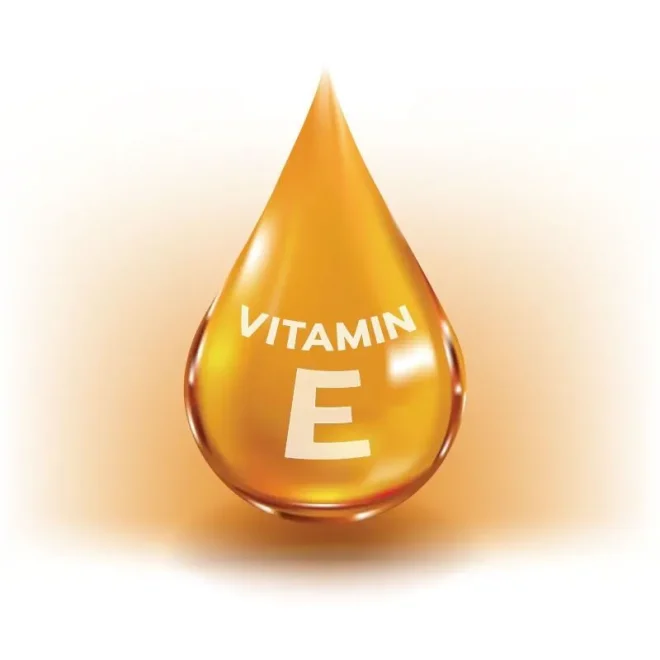
Benefits of Vitamin E: An Antioxidant Powerhouse
Do you want to be your best self? One of the best ways to improve your health is to make sure you’re getting your fair share of vitamin E.
This isn’t just another item in the long list of vitamins; Not only is this nutrient important for many important functions in the body, but the scope and depth of vitamin E’s benefits may surprise you.
From protecting your skin from the wear and tear of daily life to keeping your heart pumping, vitamin E is the silent worker behind the scenes.
But it’s not just about physical health. Vitamin E’s potential benefits extend to cognitive health and perhaps play a role in maintaining brain intelligence as we age.
Add to this the fact that it can boost your immune system and you’re looking at a variety of foods that deserve a starring role in your diet.
Vitamin E Benefits
Are you ready to learn more about the many benefits of vitamin E? Let’s reveal the secret of the power of antioxidants.
Antioxidants in vitamin E
Have you heard of antioxidants? These special chemicals help protect your body against harmful oxidative stress.
Vitamin E really shines when we talk about antioxidants. These essential nutrients play an important role in neutralizing harmful compounds called free radicals, which are produced by everyday products in your body, such as digestion or exposure to environmental toxins.
Although free radicals are necessary for certain processes in the body, they can cause damage when their levels are too high.
Benefits of Vitamin E in Oxidative Stress
They are like little thieves who steal electrons from other molecules during the oxidation process. The result is damaged cells, proteins and even DNA.
This is where vitamin E comes into play. Vitamin E neutralizes these free radicals by donating its electrons thus preventing further damage, and maintaining overall health of the cells.
This is an important process that occurs in your body to maintain balance and health, but is often underestimated.
However, the benefits of vitamin E’s antioxidant power continue to protect cells. This action creates a ripple effect that sends a host of health benefits throughout your body, from your skin to your heart to your brain.
Vitamin E Benefits for Skin Health
When vitamin E is mentioned, the first thing that probably comes to mind is its role in skin health. And for good reason! Vitamin E can be a powerful ally in skin health and growth.
The skin’s barrier is first line of defense against the environment, and vitamin E helps strengthen this barrier, especially against UV rays.
It works like a shield, protecting your skin from the damage of radiation that can cause premature aging and cancer.
But remember, vitamin E can help but does not replace the need for broad-spectrum sunscreen.
Vitamin E Benefits of Aloe Vera for Cuts and Bruises
If you have ever cut yourself, you have found products containing vitamin E. This is because vitamin E also helps the wound healing process.
It is thought to help regenerate cells in the body, thus having a positive effect and reducing the appearance of scars.
As for the aging process; We all experience this. But vitamin E may be an important factor in the fight.
Its antioxidant properties not only protect your skin from damage, but also help prevent wear and tear that causes wrinkles and fine lines.
In combating the effect of free radicals, Vitamin E helps keep the skin looking youthful, and radiant for long.
Benefits of Vitamin E for Heart Health
Your heart will thank you for adding vitamin E to your diet. Vitamin E has many benefits for cardiovascular health, making it an important ingredient in preventing heart disease.
One of the ways vitamin E helps your heart is by helping balance cholesterol. Cholesterol itself is not bad. It is an important substance that your body uses to create cells.
Problems can occur when you have too much “bad” cholesterol, or LDL. High LDL cholesterol can cause plaque to build up in your arteries, putting you at risk for heart disease.
Vitamin E acts as a natural defense. Because of its antioxidant properties, it can help prevent the oxidation of LDL cholesterol, where it causes the most damage.
Vitamin E plays an important role in cardiovascular health by helping control LDL cholesterol.
Additionally, research shows that vitamin E may help prevent blood clots from forming that can lead to heart attack or stroke. It does this by reducing blood viscosity and reducing blood clotting.
Vitamin E is being studied for its role in reducing inflammation, which is important for plaque buildup in the arteries. By reducing inflammation, vitamin E may help reduce the risk of heart disease.
It is true that adding vitamin E to your diet will be good for your heart.

Benefits of Vitamin E for Eye Health
No one likes to be blind, right? It turns out that vitamin E can play an important role in eye care as we age.
One of the most important concerns when it comes to eye health is the risk of age-related diseases such as macular degeneration and cataracts. These conditions are the leading cause of vision loss and blindness in adults. The good news is that Vitamin E may provide a line of defence against these threats.
Research shows that the antioxidant properties of vitamin E help protect eye cells from free radical damage. This is especially important in the case of macular degeneration, a condition that occurs when the base of the retina (macula) deteriorates. The antioxidants in vitamin E can help slow this process by neutralising harmful free radicals.
However, the eye health benefits of vitamin E are not limited to macular degeneration.
Vitamin E is also thought to play a role in reducing the risk of cataracts. These are clouds in the eye lens that affect vision. The antioxidant activity of vitamin E may help prevent or slow cataracts by preventing oxidative damage to the lens of the eye.
While these findings are promising, it is important to note that more research is needed to understand the benefits of vitamin E for clear eye health.
Benefits of Vitamin E for Brain Health
In our quest for health, don’t overlook the importance of keeping your brain healthy.
Research suggests that vitamin E may play a beneficial role in this area by protecting against cognitive decline. Cognitive decline refers to a decrease in cognitive abilities such as memory and thinking ability.
For some, this is part of the aging process, but for others it can develop into a more serious condition such as dementia or Alzheimer’s disease.
This is where vitamin E can come into play.
As we said before, vitamin E is known for its antioxidant properties and this can create changes in the brain.
The brain is particularly susceptible to oxidative stress, a damage caused by free radicals. Vitamin E, one of the most powerful antioxidants, can help eliminate free radicals and protect cells from damage.
Several studies have shown an association between taking more vitamin E and reducing the risk of cognitive decline as we age.
Some studies have shown that vitamin E may slow the progression of diseases such as Alzheimer’s disease, but more research is needed to confirm these findings.
It is important to remember that the brain is a fatty organ and vitamin E is fat-soluble, so it has a special relevance in preventing obesity.
This may further highlight the importance of vitamin E in brain maintenance.
Vitamin E Benefits for Immune Health
Our immune system is our body’s defence against diseases and illnesses, and it is important to keep it strong and healthy. Interestingly, vitamin E may play a role in controlling or strengthening the immune system.
As we get older, our immune system weakens. This makes us more susceptible to infection and disease and requires a longer recovery period.
One of the main benefits of vitamin E is that it can help prevent some age-related changes in the body.
Again, the antioxidant properties of vitamin E are at the basis of this benefit. Vitamin E helps keep our immune system functioning properly by protecting cells from free radical damage, such as T cells, a type of white blood cell that fights infection.
Studies have shown that vitamin E can improve the function of T cells, making them more effective at responding to and preventing infections. This is especially important in the elderly, as T cell function declines with age.
In addition to its effect on T cells, vitamin E also helps produce natural antibiotics that find and destroy bacteria and cancer cells.
It also increases the production of B cells, the immune system that produces antibodies to fight infections.
Natural Sources of Vitamin E: Eat Your Way to Health
Nuts and seeds – Almonds, sunflower seeds, hazelnuts and pine nuts are the best sources of vitamin E.
Leafy Greens – Spinach, chard and turnip greens are excellent sources of vitamin E.
Vegetable oils – Sunflower, wheat and safflower oils contain the most vitamin E. Use this oil in cooking or marinating to boost your vitamin E.
intake.
Fruits – Some fruits, such as avocados and kiwis, also provide low amounts of vitamin E. Kiwi fruit can be used as a snack or as an addition to salads.
Vegetables – Broccoli and zucchini are known for their vitamin E content. Bake, steam or add them to stir-fries for a healthy meal.
Fish – Some types of fish, such as rainbow trout and Atlantic salmon, are good sources of vitamin E.
Eating a variety of foods is important to ensure you are getting a variety of nutrients, not just vitamin E.
Try to include more of these foods in your meals. In this way, you can be sure that you will benefit from the many benefits of vitamin E at once.

Benefits of Vitamin E Supplements
Vitamin E can help you get your recommended daily intake, especially for people with certain medical conditions that make it difficult to absorb fat-soluble vitamins. But it should be balanced with enthusiasm and caution before deciding to go further.
Despite the benefits of taking supplements, it is generally ideal to get vitamin E from a varied and balanced diet.
Foods provide a combination of vitamins, minerals, dietary fiber and other nutrients that are difficult to replicate with supplements.
Multivitamins are also not a better option. In fact, too much vitamin E can cause side effects such as nausea, diarrhea, abdominal pain, weakness, fatigue, headaches, blurred vision, rashes, and even muscle stiffness and bleeding.
Vitamin E supplements may also interact with other medications, such as those used to treat heart disease or cancer.
The maximum vitamin E intake for adults is 1000 mg. It is important not to exceed this amount without medical supervision because it will cause “vitamin E toxicity”.
If you think you’re not getting enough vitamin E from your diet or have a medical condition that affects fat absorption, talk to your doctor before starting to take a vitamin E supplement.
They can evaluate your needs, consider possible interactions with the medication you are taking, and advise you on appropriate dosage.
While the benefits of vitamin E are worth exaggerating, it is also important to maintain balance. Add vitamin E carefully and with your doctor’s guidance on the pros and cons.
The balance between pleasure and caution helps you enjoy the benefits of vitamin E without side effects.
